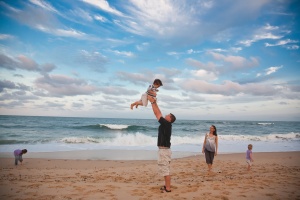
Today was Day 2 of LEQ’s Mini-conference, exploring iPads in education, on the Sunshine Coast. Again, another very cool day of exploring what iPads can do; how Apps, App chains, and even the tool itself, can be leveraged for better outcomes for our kids. Very very very cool stuff.
Amongst the myriad of sessions and workshops were two standouts for me. Firstly, the very tactile ‘app-cesseries’ – extra bits and pieces that accessorise the iPad (or iPhone, iPod, etc) to give it added functionality. My favourite – in the photo – would have to be the mini-Mater (from Disney’s Cars movie) that you could move on the iPad to explore the world of the movie.
And the other standout would have to be my extreme surprise at one of Greg O’Connor’s slides. Still can’t believe it, but there was a screenshot of hmmm… up there. Yes, you read right – he had my last night’s blog entry “The Good Stuff” up there on the screen, and was talking about this ‘cool blog he had found last night’. Absolutely INCREDIBLE!!! I was just so surprised, so grateful, so humbled! (If you ever read this, Greg – thank you SO much!) Absolutely stunned to think that everyone at this conference had, in a way, “visited” my blog. How COOL!!!
So yes, these were my highlights of the day. And if, by any chance, any of my readers also happened to attend the LEQ conference, please feel free to add below what your highlights were. And if you weren’t – then I’d love to hear what you think of the Mater truck!
(Oh, and I’ll be writing a blog post on the other great Apps / links, on the other page – “The Good Stuff”. Hope they’re helpful!)



